On the day of the anniversary, Khairi Kutarba, brought up in the traditions of “apsuara” far from the historical homeland, an engineer by education and a translator from Abkhaz to Turkish who came to live in Abkhazia, the WAC info portal publishes an essay about him.
Arifa Kapba
April 10 marks the 60th anniversary of Khairi Kutarba, the man who allowed the whole Turkey to read the classic work of Bagrat Shinkuba, the novel “The Last of the Departed”. Having absorbed the love of the historical homeland from the elders, who had known Abkhaz well since childhood, Kutarba opened a publishing house in Turkey in the 1990s to be useful to Abkhazia. He is a translator and author of the novel “Exile”, a member of the Writers' Union of Abkhazia. There is another important line in his biography: Khairi Kutarba came to the Abkhaz land and has been living in the village of Gulrypsh for about 14 years.
Turkish village with a unique name
Khairi Kutarba was born in the village of Esmakhanym near the Turkish city of Düzce. According to him, the name of the village comes from the name of an Abkhaz woman. Esma was the wife of the leader of the Abkhaz who inhabited this land in the nineteenth century. Her surname is also known - Dzapsh-ipa. After the death of her husband, Esma Dzapsh-ipa became the leader of the people who came to Turkey from the Abkhaz village of Akapa during the forced relocation.
“Until recently, in the whole of big Turkey, this was the only case when the village was named after a woman. And it was very surprising for the Turks,” says Khairi Kutarba.
Khairi's great-grandfather once lived in this village - Bazala, then his grandfather was born, then his father, and Khairi himself. Later, Khairi Kutarba's family moved to the city of Düzce. After school, Khairi wanted to become a doctor and entered a medical school in Ankara. But he did not like to study there, and he thought about education in a completely different field, entered the Istanbul Technical University, where he received the profession of civil engineer. These facts confirm the versatility of Khairi and his abilities for different subjects: it is not surprising that later he will also become a translator, a writer, a book publisher.
Language confusion
The first language that Khairi spoke was Abkhaz: it was spoken in the family. However, in those years it was not at all encouraged to speak the languages of small nations in Turkey.
“In Turkey, they were pursuing a policy of assimilation,” explains Khairi Kutarba. “Often the heads of Abkhaz families were gathered by the Turkish authorities and convinced that children should not be taught Abkhaz as they [allegedly] cannot then learn Turkish, cannot assimilate into Turkish society, remain uneducated, “rural” people. So our fathers were deceived, and I still remember that time well.”
Khairi’s grandmother did not know Turkish at all, and grandfather, although he knew it very well, wanted to speak only Abkhaz with his grandchildren: the settlers clearly realized that, while maintaining the native language, they were still connected with their native land. Khairi's mother spoke Turkish. The school was also Turkish. Such a situation of “language confusion” around growing up children was frequent for Abkhaz families in Turkey. Therefore, a generation of people appeared who spoke well both Abkhaz and Turkish. Basically, says Khairi Kutarba, the environment outside the family taught the Turkish language.
“We were taught the Turkish on the street, at school, and there even was a period [in mastering the language] when we unwittingly switched to Turkish, especially when we moved to the city.”
“We learned about Abkhazia from fairy tales”
Khairi Kutarba’s grandma, by the surname of Adzinba, descended from Abkhaz who migrated to Turkey from areas near Krasnaya Polyana (now an urban-type settlement 64 kilometers from the Russian city of Sochi - ed.). She knew many fairy tales told to her grandson - in the beautiful Abkhaz language.
“She raised us (children - ed.) on fairy tales,” Khairi recalls. – “Later I studied these fairy tales and wrote them down - 18 fairy tales that I heard from my grandmother. Among them was a fairy tale “He who blocked the road in Gagra.” We wondered: where is Gagra? Gagra is in Abkhazia. So from fairy tales we learned about Abkhazia.”
Kutarba argues that the older generations deliberately never told their children about the horrors that they had to experience during the forced relocation to Turkey, the topic of Abkhazia was generally quite closed. However, why it was so accepted, Khairi understood for himself only when he finished working on his historical novel “Exile” in 2011.
After the publication of this book, one Armenian writer phoned him and asked for a meeting. When they met, the writer admitted: after reading his novel, she concluded that ... Armenians are raising their children wrong. “We are in our novels, this Armenian writer told me, always complaining, crying about how we were badly treated and how we were killed. We cry and suffer. Whereas in your novel there is exile, there are disasters, but people do not lower their heads. Wherever they are, they hold their heads high. According to your novel, I realized that you were raised without complaining, but learning to respect yourself and not to lower your head to anyone,” says Khairi.
He explains that his ancestors, having given up hope of returning to their native lands, at the same time firmly decided to preserve the concept of “apsuara” (Abkhaz moral-ethical code - ed.) and educate children in Abkhaz customs and traditions.
Even raising children in a foreign land, the Abkhaz firmly strengthened absolute unconditional love for their native land in their minds.
“They urged us to respect Turkish customs, but never to accept them as our own. They convinced us that if we lose “apsuara”, we would lose everything. Our fathers did not advise us how to act in a given situation, their very behavior was an example for us, they behaved the Abkhaz way,” Khairi said.
Publishing house “Nart”
One day, a well-known representative of the Abkhaz Diaspora in Turkey, a scientist Omar Beyguaa invited Khairi Kutarba to his place and showed him a letter from the rector of the Abkhaz State University Aleko Gvaramiya. The letter stated that in the near future a war might break out on the Abkhaz land. It made a strong impression on Khairi. Reflecting on what he could have done for his historic homeland, while in Turkey, Khairi Kutarba and his friends founded the “Nart” publishing house.
At the publishing house, they tried to translate into Turkish important books and publications that told about Abkhazia, it’s past and present. Books found a response from the representatives of the Abkhaz Diaspora in Turkey. Among them were the books of scientists Yuri Argun and Georgy Amichba. Khairi himself also acted as the author of the publishing house, writing the book “History of Circassians”. However, his most significant work was the translation from Abkhaz to Turkish of Bagrat Shinkuba’s novel “The Last of the Departed”, which Kutarba made in 1990.
After the Patriotic War of 1992-1993, the people of Abkhazia, Khairi and his friends continued publishing, began to produce the “Alashara” journal in Turkey.
A home at your own home
For the first time Kutarba visited Abkhazia in 1990, and in 2006 he decided to come for good, to stay in his historic homeland. “I didn’t take anything with me, I came empty handed,” recalls Khairi. “So I came and lived here, in Gulrypsh.”
The State Committee for Repatriation (now the Ministry of Repatriation - ed.) helped Khairi to acquire a dilapidated house in Gulrypsh. He really liked the place. Having put considerable efforts, Kutarba, a civil engineer by education, completed this house.
Khairi notes with regret that working in Abkhazia by profession is “not very successful,” since here “everyone is an engineer for himself”. He says that in Turkey until recently the situation was similar. The houses were built independently - five or six floors, but then during the 2011 earthquake there was a lot of destruction, many people died. Since then there is a very serious control in the field of construction, and here, in any case, so far, “everyone is engineer for himself.”
“You start building something for someone - he likes it at first, but then he changes something, tries to teach you. You say that if you do this, the house will collapse - he is offended. Therefore, I cannot work here, I sit idle. I have my own garden. I planted an orchard, for which I
take care; I have many kinds of fruits and buy few things in the market. And if, like many repatriates, I lived in an apartment, I could hardly have maintained myself,” he shares.
Khairi Kutarba also tried himself in television journalism. He presented the program “Heartbeat of the Motherland”, which was broadcasted on the private TV channel “Abaza-TV”. This telecast covered the problems of repatriates; it discussed the affairs of the Diaspora.
Living now in his historical homeland, Khairi regrets only that he can hear less Abkhaz speech around himself than he could if everyone spoke Abkhaz language. He would also like to have more mutual understanding between repatriates and those who were born here.
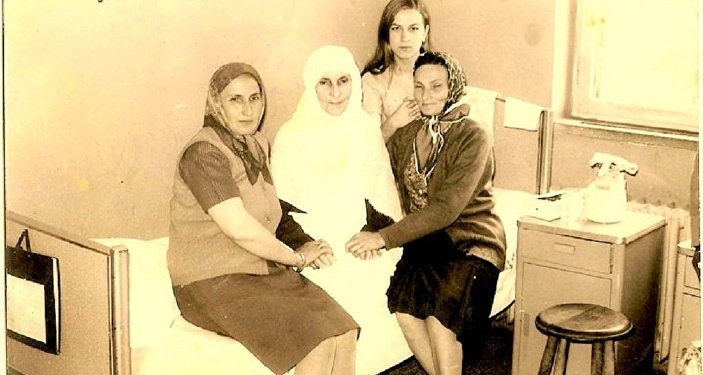
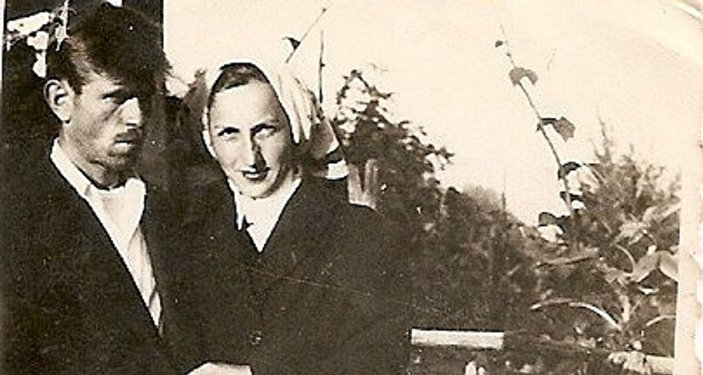
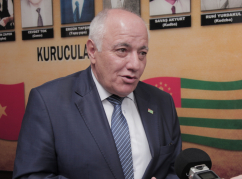
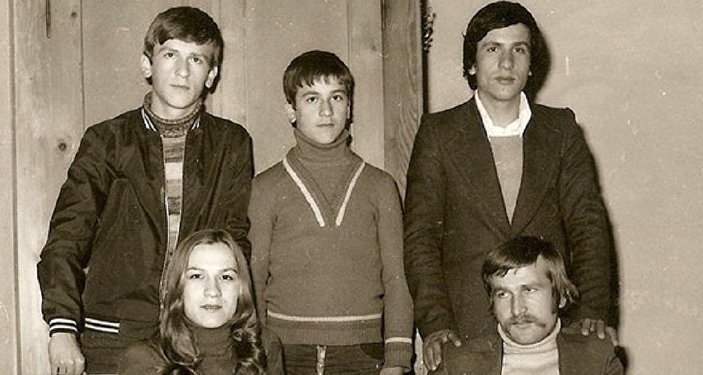
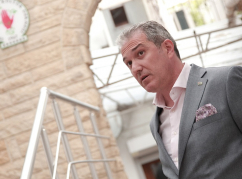
to login or register.